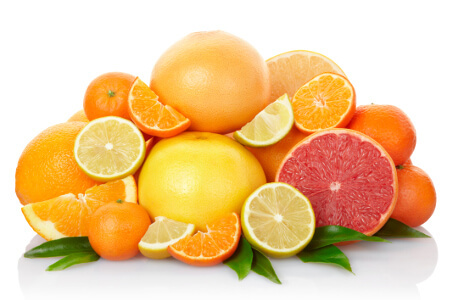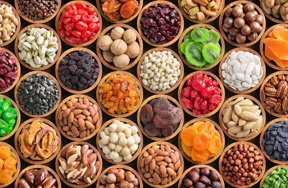You know that it's important to get them, do you know how vitamins work? For something so small, they do a lot for us - find out more!
What Are Vitamins?
You've probably heard your parents tell you take your vitamins at least once, but you might have wondered...what are they? Vitamins and minerals are found naturally in foods that we eat. They are considered "nutrients" that are important to our bodies. Unlike minerals, vitamins are organic substances - meaning they are made by plants or animals.
 Citrus fruits are a quick and delicious source of vitamin CCourtesy of organicshift.org
Citrus fruits are a quick and delicious source of vitamin CCourtesy of organicshift.org
There are two kinds of vitamins:
- Fat Soluble: These dissolve in fat, and can be stored in your body (this includes vitamins A, D, E, and K.)
- Water Soluble: These vitamins needs to dissolve in water before we can absorb them (this includes vitamins C and B). Because of this, your body can't store these vitamins. If your body doesn't use this vitamin right away, it will pass through your body.
 No time to eat fruit or veggies? There's always vitamins in pill formCourtesy of greenblender.com
No time to eat fruit or veggies? There's always vitamins in pill formCourtesy of greenblender.com
Why Do We Need Vitamins?
Ever heard that you need more vitamin C when you get a cold? Well, you really need all of them to get better. Vitamins play an important role in helping your immune system in lots of different ways. They help growth and development in your body, from everything helping your eyes to helping blood to clot.
 this handy chart shows you what foods give you each vitaminCourtesy of lifehack.org
this handy chart shows you what foods give you each vitaminCourtesy of lifehack.org
What Does Each Vitamin Do?
Each vitamin helps a different process in the body, here are few examples:
Vitamin A: You can get vitamin through carrots, the "carotenoids" found in this vegetable is converted to vitamin A, which then helps your eye health.
Vitamin B Complex: B Complex is just what it sounds like - complex! There's B6, B12, niacin, riboflavin and folate in this category. This set of nutrients helps us convert food into fuel. It's not easy to store this vitamin in our bodies, and they are destroyed easily. It can be found naturally in vegetables like red bell peppers.
Vitamin C: This can be easily found in many fruits and vegetables, and helps with tons of immune system issues, and some people claim it helps with the common cold.
Vitamin D: This vitamin helps with bone development by getting the body to absorb calcium (which is why it is sometimes added to milk), as well as general immune issues. The best way to get this vitamin is still good old sunshine. It can also be found in fish and some plants.
Vitamin K: Found in leafy greens and soy beans, K helps blood to clot and supports calcium, making your bones strong.
Have Your Say
Do you think you get enough vitamins? Let us know in the comments section below.

































